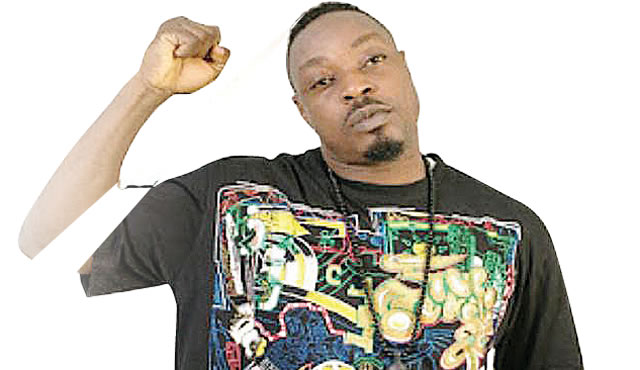Eedris Abdulkareem, a veteran figure in the Nigerian music scene, has found himself at the center of a renewed controversy involving censorship and freedom of expression. His latest single, “Tell Your Papa,” has been banned from airplay by the National Broadcasting Commission (NBC), sparking accusations of political motivation and suppression of dissent. The NBC cites violations of the broadcasting code, specifically referencing the song’s “objectionable nature,” echoing a similar incident from 2004 when Abdulkareem’s protest song “Jaga Jaga” faced censorship under the Obasanjo administration. This latest clash highlights the ongoing tension between artistic expression and government regulation in Nigeria, raising fundamental questions about the boundaries of free speech in a democratic society.
Abdulkareem has vehemently denounced the ban, using his social media platform to express his outrage and challenge the NBC’s decision. He argues that the ban is a direct attack on truth and constructive criticism, painting the current Tinubu administration as intolerant of dissenting voices. This echoes the sentiment behind “Jaga Jaga,” which critiqued societal ills and government corruption. Abdulkareem’s comparison between the two incidents underscores his perception of a recurring pattern of censorship aimed at silencing artists who dare to challenge the status quo. The artist’s strong stance positions him as a staunch defender of free speech, willing to confront authority to protect the right to express critical viewpoints.
The NBC’s justification for the ban, citing the song’s “objectionable nature,” remains vague and open to interpretation, fueling speculation about the true motives behind the decision. The lack of specific details regarding the objectionable content raises concerns about the potential for arbitrary application of censorship rules, potentially stifling artistic expression and limiting public discourse on important issues. Abdulkareem’s accusations of political motivation further complicate the matter, suggesting that the ban may be less about upholding broadcasting standards and more about suppressing criticism of the government. This lack of transparency exacerbates the already tense relationship between artists and the regulatory body, creating an environment of distrust and hindering open dialogue.
The controversy surrounding “Tell Your Papa” reignites a broader debate about the role of music and artistic expression in holding power accountable. Abdulkareem’s music has often served as a platform for social commentary, tackling issues of corruption, inequality, and government failings. The ban on his latest single can be seen as an attempt to silence this critical voice, raising concerns about the shrinking space for dissent in Nigeria. The incident highlights the power of music to challenge authority and spark dialogue, while simultaneously exposing the vulnerability of artists to censorship and repression. The clash between Abdulkareem and the NBC underscores the ongoing struggle for artistic freedom in a society grappling with political sensitivities and the boundaries of acceptable expression.
This incident also raises fundamental questions about the balance between protecting societal values and upholding the right to freedom of expression. While the NBC has a mandate to regulate broadcasting content and ensure adherence to certain standards, the vague nature of the “objectionable nature” clause raises concerns about its potential for misuse. Critics argue that such broad language can be easily manipulated to suppress dissenting voices under the guise of protecting public morality or national security. The lack of clear guidelines and transparent processes for determining what constitutes “objectionable content” further contributes to the perception of arbitrary censorship, creating a chilling effect on artistic expression.
The banning of “Tell Your Papa” has resonated within the Nigerian music community and beyond, sparking conversations about the state of freedom of expression in the country. Many artists and activists have expressed solidarity with Abdulkareem, viewing the incident as an attack on artistic freedom and a worrying sign of increasing government intolerance towards dissent. This incident highlights the importance of protecting artistic expression as a crucial component of a healthy democracy, enabling citizens to engage with critical social and political issues. The ongoing debate underscores the need for a more nuanced and transparent approach to content regulation, one that balances the need to protect societal values with the fundamental right to freedom of expression.














